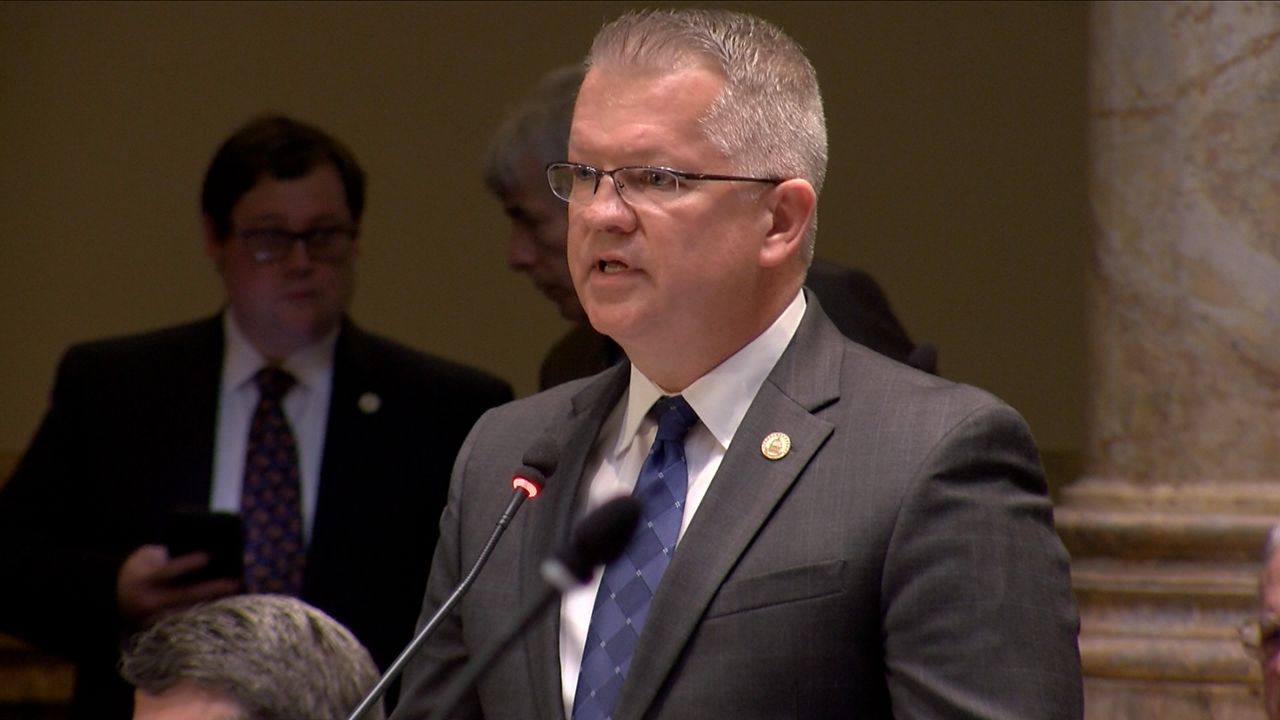FRANKFORT, Ky. — An ambitious measure to expand early childhood education in Kentucky passed an early test Tuesday, winning broad support from a legislative panel as lawmakers look for ways to relieve parental stress by increasing access to child care.
The proposal cleared the Senate Families and Children Committee on a 9-1 vote. The legislation still has several hurdles to clear in the last weeks of this year’s 60-day legislative session.
In promoting his bill Tuesday, Sen. Danny Carroll, R-Benton, recounted an email he received from a man expressing frustration over the difficulty he and his wife have had in finding a day care for their young child. The man said they’re on four waiting lists for day care and their prospects remain uncertain ahead of his wife’s scheduled return to work.
The man’s email summed up the situation as “ridiculous” — spelled all in capital letters to emphasize his point, Carroll said. It exemplifies the child care challenges faced by many parents, the senator said.
“That’s what we’re facing,” Carroll told the committee. “We as a state can decide to fall into the pit that the other states are falling in, or we can stand up and set the example for the rest of this country to follow.”
The problem has broader implications, affecting workforce participation rates and the state’s attractiveness as a place for business and industry to locate, the bill’s supporters say.
The Kentucky bill comes amid uncertain times nationwide for child care providers and parents. The $24 billion of pandemic aid that Congress passed in 2021 for child care businesses is drying up. Republican state lawmakers across the country have responded by embracing plans to support child care.
Still, the largest investments in child care have come from Democratic lawmakers. In New Mexico, the state is covering child care for most children under five using a trust funded by oil and natural gas production. In Vermont, Democratic lawmakers overrode the GOP governor’s veto to pass a payroll tax hike to fund child care subsidies.
Kentucky has lost about half of its child care providers in the past decade and risks losing more once the federal aid evaporates, causing the need for the state to step in with help, Carroll has said.
Child care providers have struggled to offer competitive wages to maintain adequate staffing.
His measure, dubbed the Horizons Act, would include state support for child care centers and families struggling to afford child care. It would create funds meant to help increase the availability of early childhood education services and to foster innovations in early childhood education. Another goal of the bill is to lure people into education programs designed to prepare them to operate child care centers.
One long-term goal is to someday make terms like “child care” and “day care” obsolete, replaced by early childhood education — no matter the setting or age of the child, Carroll has said. His measure — Senate Bill 203 — has drawn broad-based praise from advocates for business and children.
Much of the discussion in coming weeks will focus on the bill’s price tag — currently pegged at $300 million over the next two fiscal years. Senators are currently reviewing the two-year state spending plan approved by the House and will eventually present their own version. Final budget details will be hashed out in a conference committee of House and Senate leaders. The GOP has supermajorities in both chambers.
“The final dollar amount is yet to be determined,” Carroll told the committee Tuesday.
He said the settings for early childhood education centers will vary — including faith-based facilities, centers run by nonprofit or for-profit groups and programs run in private homes.
Sen. Lindsey Tichenor, R-Smithfield, was the lone committee member to vote against the bill. She raised concerns about whether facilities would face the same constitutional barriers that have blocked the state from assisting parents who want to enroll their older children in private or charter schools.
“If this is truly curriculum where we’re teaching kids and educating kids on a younger level, how will we get past that same constitutional issue that other school choice educational bills in the past have been hung up on?” she said.
Lawmakers are considering a separate measure aimed at removing those barriers for private schools. That proposed constitutional amendment would go on the November statewide ballot if it clears the legislature.
As for the early childhood education proposal, GOP supporters of the bill said Tuesday that it provides a framework for lawmakers to tackle the pressing issue of access to child care.
“We could really get caught up in a paralysis by analysis,” Sen. Stephen Meredith, R-Leitchfield, said in explaining his vote for the bill. “This is a great first effort. I’m sure there will be changes in the future. But I think the worst thing that could possibly happen for our commonwealth is to do nothing.”



